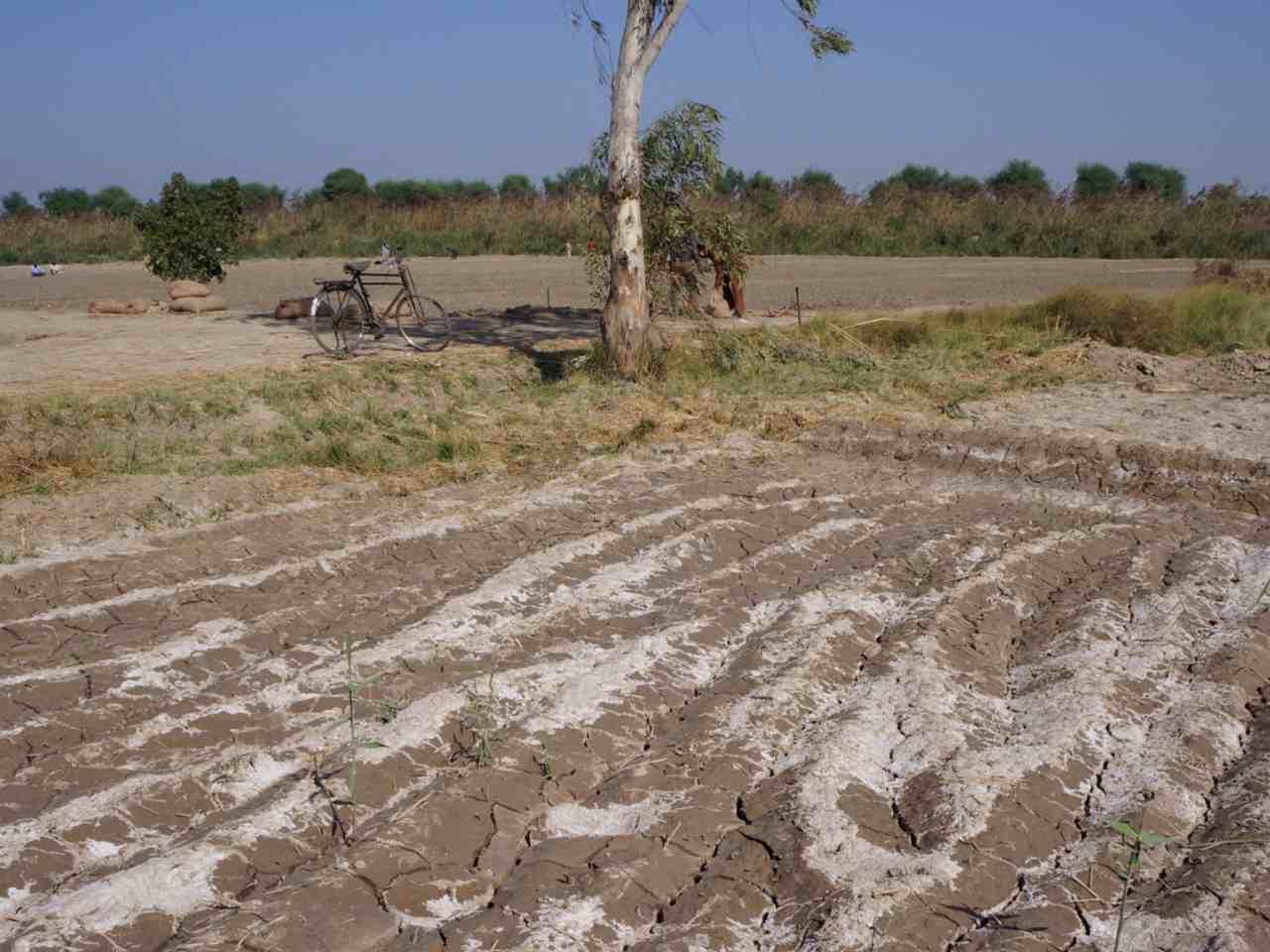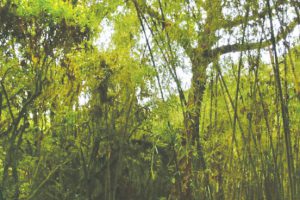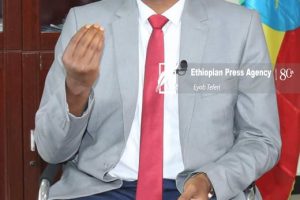
Over the last four years, the International Center for Biosaline Agriculture (ICBA) is working with the Ministry of Agriculture, and the Ethiopian Agricultural Research Institute (EIAR) to introduce advanced irrigation and crop management practices for the restoration soils with low to medium salinity levels.
However, in areas where increased salinity levels have restricted the growth of regular field crops, the use of biosaline approach, based on adaptable technology packages composed of salt-tolerant fodders and halophytes (salt-loving plants) integrated with livestock and appropriate management systems, are being introduced. These integrated crop and forage-livestock feeding systems have the capacity to increase the resilience of crop-livestock farms, in both Ethiopia and South Sudan.
Asad Sarwar Qureshi (Ph.D), Senior Scientist, Irrigation and Water Management at ICBA said: “Today, Ethiopia stands first in Africa in the extent of the area of salt-affected soils due to human-induced and natural causes. Current estimates suggest that over 11 million hectares of land are exposed to salinity and sodicity, out of which 8 million hectares have combined salinity and alkalinity problems, whereas the rest 3 million hectares have alkalinity problems. The salt-affected lands in South Sudan are located in the White Nile irrigation schemes. These areas have hardly been utilized for agricultural production despite having great potential due to freshwater availability from the Nile.”
According to Dr. Asad Qureshi, ICBA has successfully introduced and demonstrated different soil, water and crop management strategies to improve agricultural productivity of salt-affected lands in different regions of Ethiopia. As of today, ICBA has introduced about 25 genotypes of highly salt-tolerant food and forage crops in Ethiopia. Out of this, 15 genotypes of Sorghum, Cowpea, Barley, Lablab, Rhodes grass, Panicum grass and Cinchrus grass have been recommended for scaling up.
For scaling up the crop management strategies, ICBA has established more than 10 seed multiplication units across Ethiopia. These units will produce more than 15 tons of seed of various crops for distribution among 20,000 smallholders. ICBA has also trained more than 2000 irrigation and soil scientists, extension workers and farmers (including more than 600 women) on the new soil, water and crop management practices through the organization of formal training courses and farmer field days.
Of course, the innovative approaches, demonstrated by ICBA, have created significant impact and are contributing immensely to the Ethiopia’s Green Growth Strategy advancing both food security and livelihood of many Ethiopians.
Most of the interventions in the agriculture sector are not concentrated on the soil
affected lands. This has made worse and costing the nation towards fighting against poverty and ensuring food security.
In light of this, the ICBA initiated an innovative and dynamic biological approach to address the problems through the Rehabilitation and Management of Salt-affected Soils to Improve Agricultural Productivity in Ethiopia and South Sudan (RAMSAP) project. The project is funded by the International Fund for Agricultural Development (IFAD).
According to Dr. Tesfaye Ertebo, ICBA’s RAMSAP Project Officer Biosaline agriculture is the best fitting technology to rehabilitate salt-affected areas. This approach prudently adopted since 2016 in five (Amhara, Oromia, Afar, Somali and Tigray) regional state of Ethiopia. The project has been testing different salt-tolerant crop and fodder varieties in the farmer’s trial sites and research stations.
Dr. Tesfaye further explains the impacts of the intervention. He said: “Now we are setting stone for the restoration of soil salinity in the country. The field observation really represents the beginning of greater rollups of the soil to its productivity. Farmers started to produce up to 80 quintals from half ha, which did not happen before the intervention.
Ashenafi Worku Salinity Researcher at Werer Research Centre reinforces the above argument. “Look this soil lost its aggregation because of salinity. Biological approach is one of the economical and effective reclamations and management approaches of such salt-affected soil. This approach is based on adaptable technology packages composed of salt-tolerant fodders and halophytes, integrated with livestock forage and appropriate management systems. These integrated systems have the capacity to increase the resilience of small-scale crop-livestock farms. For these reasons, we are introducing crops that have Ameliorative effects and trying to adapt at local context.”
As to him, the project also provides seeds and training such as farm management and best agronomic practices in the affected plots, cleaning, and maintenance of irrigation canals. Project target is to rehabilitate 100,000 ha of land. This will benefit about 40,000 smallholder farmers directly and many others indirectly. The net result is improving soil quality, the soil PH and bulk density characters which have spillover effects on the improvement of crop and forage production. Those who engaged in the project and the non-project farmers were very impressed by the impacts, started to adapt and expand the technology by them.
Consequently, the project becomes very demand driven for both restorations of soil salinity and to improve forage varieties to feed & increase livestock productivity in lowland areas of the country. Its adoption is at a peak stage, the research centers are capable to produce up to 15 tons of seeds and disseminate at a wider scale across the country. The stories captured from the intervention areas also validate this fact.
Likewise, Dr. Asad Qureshi also explained that the other outstanding achievement of
ICBA’s RAMSAP Project is the development of salinity maps, which indicates the potential soil salinity areas, levels, and severity of the situation, which is the first in its kind in Ethiopia. The map guides the areas of low, medium, and highly salt-affected areas. It is also very instrumental to invite partners who are interested to support.
Overall, the ICBA’s work under this project has got vast recognition in the farming community and at the government level. ICBA is now working with the MoA and the donors to extend this project for another 5-year to extend the benefits of thousands of rural pastoralist communities in salt-affected areas by enhancing feed and fodder production, while rehabilitating their soil.
All these activities were part of the Rehabilitation and Management of Salt-affected Soils to Improve Agricultural Productivity (RAMSAP) project, funded by the International Fund for Agricultural Development (IFAD). The five-year project was aimed to increase agricultural productivity, food security, and income for smallholder farmers, agro-pastoral/pastoral communities in Ethiopia.
International Center for Biosaline Agriculture (ICBA) is an International, non-profit agricultural research center. Head Quarter in Dubai, UAE, works towards achieving food, nutrition & water security, in saline & marginal environments around the world. ICBA has developed a variety of methods of Bioremediation in order to bring salt-affected lands back into agricultural use.
The Ethiopain Herlad Jun 20, 2020
BY ZELALEM GIRMA




